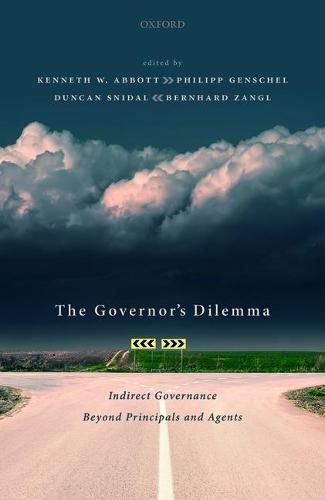Readings Newsletter
Become a Readings Member to make your shopping experience even easier.
Sign in or sign up for free!
You’re not far away from qualifying for FREE standard shipping within Australia
You’ve qualified for FREE standard shipping within Australia
The cart is loading…






The Governor's Dilemma develops a general theory of indirect governance based on the tradeoff between governor control and intermediary competence; the empirical chapters apply that theory to a diverse range of cases encompassing both international relations and comparative politics. The theoretical framework paper starts from the observation that virtually all governance is indirect, carried out through intermediaries. But governors in indirect governance relationships face a dilemma: competent intermediaries gain power from the competencies they contribute, making them difficult to control, while efforts to control intermediary behavor limit important intermediary competencies, including expertise, credibility, and legitimacy. Thus, governors can obtain either high intermediary competence or strong control, but not both. This competence-control tradeoff is a common condition of indirect governance, whether governors are domestic or international, public or private, democratic or authoritarian; and whether governance addresses economic, security, or social issues. The empirical chapters analyze the operation and implications of the governor's dilemma in cases involving the governance of violence (e.g., secret police, support for foreign rebel groups, private security companies), the governance of markets (e.g., the Euro crisis, capital markets, EU regulation, the G20), and cross-cutting governance issues (colonial empires, "Trump's Dilemma"). Competence-control theory helps explain many features of governance that other theories cannot: why indirect governance is not limited to principal-agent delegation, but takes multiple forms; why governors create seemingly counter-productive intermediary relationships; and why indirect governance is frequently unstable over time.
$9.00 standard shipping within Australia
FREE standard shipping within Australia for orders over $100.00
Express & International shipping calculated at checkout
The Governor's Dilemma develops a general theory of indirect governance based on the tradeoff between governor control and intermediary competence; the empirical chapters apply that theory to a diverse range of cases encompassing both international relations and comparative politics. The theoretical framework paper starts from the observation that virtually all governance is indirect, carried out through intermediaries. But governors in indirect governance relationships face a dilemma: competent intermediaries gain power from the competencies they contribute, making them difficult to control, while efforts to control intermediary behavor limit important intermediary competencies, including expertise, credibility, and legitimacy. Thus, governors can obtain either high intermediary competence or strong control, but not both. This competence-control tradeoff is a common condition of indirect governance, whether governors are domestic or international, public or private, democratic or authoritarian; and whether governance addresses economic, security, or social issues. The empirical chapters analyze the operation and implications of the governor's dilemma in cases involving the governance of violence (e.g., secret police, support for foreign rebel groups, private security companies), the governance of markets (e.g., the Euro crisis, capital markets, EU regulation, the G20), and cross-cutting governance issues (colonial empires, "Trump's Dilemma"). Competence-control theory helps explain many features of governance that other theories cannot: why indirect governance is not limited to principal-agent delegation, but takes multiple forms; why governors create seemingly counter-productive intermediary relationships; and why indirect governance is frequently unstable over time.